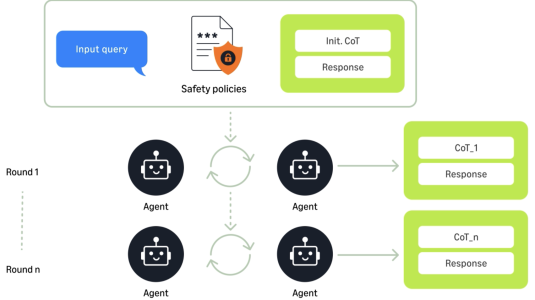Customer-obsessed science


Research areas
-
July 31, 2025Using ensembles of agents to generate and refine interactions annotated with chains of thought improves performance on a battery of benchmarks by an average of 29%.
Featured news
-
Machine Learning for Healthcare 20242024Given a particular claim about a specific document, the fact checking problem is to determine if the claim is true and, if so, provide corroborating evidence. The problem is motivated by contexts where a document is too lengthy to quickly read and find an answer. This paper focuses on electronic health records, or a medical dossier, where a physician has a pointed claim to make about the record. Prior methods
-
2024We present Event-focused Search, an automated and scalable pipeline designed to facilitate event discovery and enhance event-based search. This is done by leveraging large language models (LLMs) to populate event datasets, perform temporal search based on selected dates, and aggregate search results based on appropriate events based on those searches. We illustrate this pipeline through proof-of-concept
-
2024NeurAlly-Decomposed Oracle (NADO) is a powerful approach for controllable generation with large language models. It is designed to avoid catastrophic forgetting while achieving guaranteed convergence to an entropy-maximized closed-form optimal solution with reasonable modeling capacity. Despite the success, several challenges arise when apply NADO to a wide range of scenarios. Vanilla NADO suffers from
-
Affordance grounding refers to the task of finding the area of an object with which one can interact. It is a fundamental but challenging task, as a successful solution requires the comprehensive understanding of a scene in multiple aspects including detection, localization, and recognition of objects with their parts, of geospatial configuration/layout of the scene, of 3D shapes and physics, as well as
-
Large Language Models (LLMs) can be leveraged to improve performance in various stages of the search pipeline – the indexing stage, the query understanding stage, and the ranking or re-ranking stage. The latter two stages involve invoking a LLM during inference, adding latency in fetching the final ranked list of documents. Index enhancement, on the other hand, can be done in the indexing stage, in near
Academia
View allWhether you're a faculty member or student, there are number of ways you can engage with Amazon.
View all





























